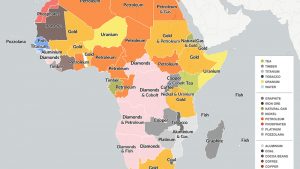 The Chief Executive Officer and Managing Director of the First Atlantic Bank, Gabriel Edgal has advised project developers undertaking multimillion dollar projects in Ghana to tap into the expertise of local banks to enable them deliver the projects on time.
The Chief Executive Officer and Managing Director of the First Atlantic Bank, Gabriel Edgal has advised project developers undertaking multimillion dollar projects in Ghana to tap into the expertise of local banks to enable them deliver the projects on time.
According to him, employing the services of local banks would enable the international project developers to have knowledge on how to transact banking services in the country.
Mr Edgal gave the advice when he joined seasoned project developers to discuss the topic-‘Unlocking Capital/Investment for Infrastructure Development’ in Ghana at the bank’s executive breakfast meeting held in Accra over the weekend.
The well-attended breakfast meeting which was organised by the bank in collaboration with the UK Trade and Investment Ghana, and the British High Commission in Ghana attracted business executives, Ministries, Departments, and Agencies (MDAs), among others.
Mr Edgal told the panelists that; “we have the local knowledge to ensure that most projects come to fruition. Our doors are opened to partner project developers in the country”.
When asked whether the local banks have the financial muscles to sponsor big projects in the country, he admitted that there were shortages of liquidity among the banks but was hopeful that the situation would change very soon.
Mr Edgal maintained: “I do believe that very soon you will begin to see bank bonds on the market to provide finance for major projects” in the West African second largest economy.
In a short speech before the panel discussion, the UK Minister of Trade and Industry, Lord Livingston said: “Ghana can learn from the example of the UK even as it goes through austerity and still have to find resources for infrastructure development.
UK is investing in offshore, electricity and these are areas of concern not only for Ghana but all over the world”.
The Director, Public Investment Division of the Ministry of Finance, Mrs Magdalene Apenteng who was among the panelists used the occasion to announce Public Private Partnership (PPP) opportunities which the government is eager to undertake within the short, medium, and long terms.
According to her, the national airline project under the Ministry of Transport was one of the projects the government was working hard to execute, but, she hinted: “The government doesn’t intend putting money on it”.
Mrs Apenteng explained that the government’s decision of restricting itself from funding the proposed national airline was to limit government’s exposure to risk in management and running of the national airline.
She was quick to add that government’s role in establishing the airline would be to encourage the private sector operator that will be selected to partner government in running the airline.
“It is important to note that government does not intend to put in money into this national airline, though it may put in some sort of incentive to attract the private sector to come onboard. What I’m trying to say is that, we don’t have the physical cash to put in the airline – i.e. we are not going to put in money as a new airline. That’s the concept.
“But the project is still being prepared by the transaction advisor PwC, and it will give us the options as to what can possibly be done to have the national airline.
“But in terms of the financing, we want the private sector to fund it. However, we will provide incentives to assist the private sector,” Mrs Apenteng stated.
Another project, Mrs. Apenteng, who heads a division of the Finance Ministry with the mandate to coordinate and implement the national Public Private Partnership (PPP) programme by providing a transaction advisory role for PPP projects, spoke volume of was the Boankra Inland port project which has been stalled due to lack of funds.
The project which involves the reconstruction of the 300km stretch of dilapidated and defunct narrow gauge rail line to a standard gauge and the development of a 400 acre plot of land at Boankra into an Inland port when completed is expected to reduce congestions at Tema, and Takoradi ports.
The Eastern Railway which stretches from the Tema Port through to Accra to Kumasi and the Boankra Inland Port put together as a project by the Ministries of Finance and Transport when fully completed would ensure an efficient transport system both within the country and other land-locked countries that use Ghana as a transit point.
Fortunately, Mrs. Apenteng noted that the project would soon see the light of the day, stressing that the government and the PwC meet weekly over the project
A Senior Partner, AB & David, David Ofosu-Dorte who shared the platform with the three speakers urged the government to advice the Electricity Company of Ghana (ECG), and Volta River Authority (VRA) to raise their own capital independently from government to run the two power firms.
An Associate Developer at eleQtra and the Head of eleQtra (West Africa) Ltd based in Accra, Elizabeth Biney-Amissah called for the grow of Ghana’s capital market to enable small firms to raise money for their projects.
Resident Representative of African Development Bank (AfDB) in Ghana, Marie-Laure Akin-Olugbade challenged Ghanaian banks to emulate the example of the South African banks which go outside the Southern African Development Community (SADC) zone to raise funds for development.
African Eye News.com





